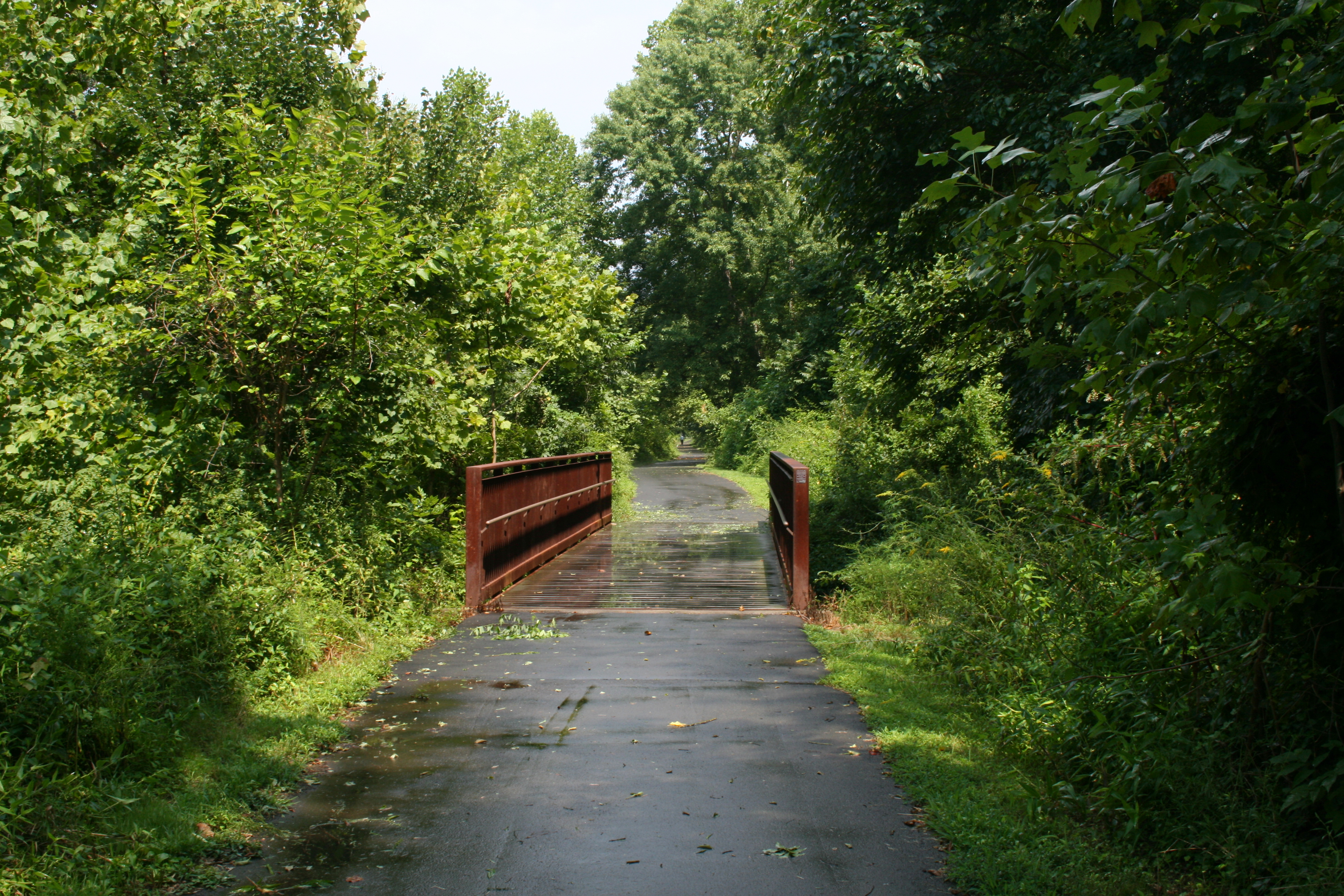After over 24 hours of hard rain, and despite an ongoing steady downpour, we entered the parkland for a walk, carrying umbrellas and bundled against the chill. Crossing the footbridge, the brown, frothing waterway made a mockery of the word creek.
 The water was lapping at the edges of the picnic sites, cresting with small waves and swirling into side currents. My friend said it was higher than he’d seen it in his three years here, and I replied that it was higher than I’ve seen it in 20.
The water was lapping at the edges of the picnic sites, cresting with small waves and swirling into side currents. My friend said it was higher than he’d seen it in his three years here, and I replied that it was higher than I’ve seen it in 20.
The park roads were carpeted with detritus from the storm, some of which were small branches. They warned of the danger of larger limbs cracking off the huge old oaks and crashing down.
Surprisingly, there were others in the park, among them a trio of women, wearing only running clothes, and a lone young woman, sans umbrella, dressed in rain gear from head to foot.
There was a feeling of great intensity and urgency in the downpour. Only humans lack intensity and urgency, for they are two of the essential qualities of life.
The next day there was a strange, somber atmosphere in the parkland. Entering it, the world, which has returned to its normal meaninglessness, instantly seemed far away, and the land suspended, recovering from the storm. Even the fast-moving, voluminous current, significantly diminished from the day before, sounds hushed.
My friend and I have been grappling with the meaning and significance of meditative states of awareness. He is more concerned with their import than I am, though I have a strong social and practical side (which may come as a surprise to my readers). I’m interested to find out whether and how the ending of psychological time by a growing number of individuals would contribute to society and the future of humanity.
The first thing that strikes me however is that no one who actually awakens a meditative state asks what its utility or import is. (With all due respect to William James, there aren’t varieties of religious experiences, anymore than there are varieties of the Brahman.)
The timeless state stands alone, and need have no significance for the world. On the other hand, without experiencing the numinous on a regular basis, nothing has any meaning, and living becomes a barren affair.
The timeless state has no reason, cause, purpose, or goal. It is complete. It needs nothing, and may do nothing. Man and the world may continue to go to hell in a hand basket, but it is still there, waiting to be awakened in the self-knowing individual. (Self-knowing is in the present; self-knowledge is of the past. We not only need to ‘reinvent the wheel’ ourselves where meditation is concerned; we need to reinvent it every day.)
So in itself timeless awareness has no import, though it brings the peace that passes all understanding, as well as deep rest and renewal. That doesn’t mean the timeless offers escape from the world, from the temporal. One still has to live, work, contribute to humanity and do what one can for those one cares about.
That said, given the vortex of darkness that the global culture and human consciousness has become, it seems a little absurd to ask what import states of insight and joy have.
To that my friend, who is much more acquainted with Indian gurus, ancient and modern-day, says, “I see a real danger—with a number of exemplars—of what I call “bliss-ninny” syndrome.” That’s funny.
Though he doesn’t place yours truly in this category, I’m interested in exploring how experiencing of the timeless contributes to resolving the crisis of consciousness humankind is intensely and urgently facing. Therefore my concern is not the import of meditation in the world, but the export of the world on the psyches and souls of young people (and thereby the future of humanity) who don’t know how to awaken meditative insight.
The mind-as-thought cannot fall silent, allowing the experiencing of the timeless and numinous, if the intellect is operating, trying to reach the state of insight through knowledge or reason, however precise.
For the mind and heart to come into contact, indeed, for the sacred to flow through the brain, the intellect, including all knowledge and experience, has to be completely held in abeyance.
I don’t share the urge of some serious meditators to sit on a mountaintop, since I still feel it has value, utility and import to climb as high as I can, stand for a bit, and return to the world on a daily basis. (The transport, when it occurs, is effortless and instantaneous, while the transition back to one’s life and society is increasingly integrated, so it’s not tiring, as one might think.
Even so, if I was faced with the choice of gaining all the laurels the world was able to confer, but not being able to return to the mountaintop, there would be no choice. Accolades from cynical elites that seem to have little or no inner lives of their own don’t mean anything, and lead to the nihilistic nonsense of celebrity gurus. After all, “for what does it profit a man to gain the whole world and forfeit his soul?”
Bottom line? The timeless state may act upon the temporal, but the temporal has no relationship to the timeless state.
On the third morning there is tremendous stillness, and an exploding beauty and serenity of the earth, framed by magnificent cumulus. The land is bathed not only in light, but beauty beyond the light of our sun.
Martin LeFevre

